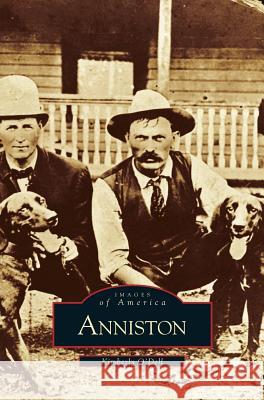Anniston » książka
Anniston
ISBN-13: 9781531603854 / Angielski / Twarda / 2000 / 130 str.
Once known as Pine Ankle and sparsely populated with
farms, Anniston, Alabama, has seen a multitude of changes over the course of its history. Founded on land that was originally home to Native Americans, the town was created by Samuel Noble and General Daniel Tyler as a "model city" for their Woodstock Iron Company in 1872, and not opened to the public until 1883. Rapid growth in the late nineteenth century brought not only new industries to the area but also Anniston's designation as seat of Calhoun County and an expansion of the entire downtown area.
The vintage photographs within these pages reveal what life was like in Anniston in days gone by, highlighting key figures in the town's development as well as the everyday people who have lived and worked in the community for generations. Readers will
discover the new industries that sprang up after the Oxford Iron Furnace was burned by Union forces in 1865, and the effects of the population boom of the late nineteenth century. Anniston's homes, schools, and churches are featured in this pictorial retrospective, as well as the town's role as an important military site, with Camp Shipp, Fort McClellan, Pelham Range, and the Anniston Ordinance Depot all located within the town's vicinity over the past century.
Once known as Pine Ankle and sparsely populated with
farms, Anniston, Alabama, has seen a multitude of changes over the course of its history. Founded on land that was originally home to Native Americans, the town was created by Samuel Noble and General Daniel Tyler as a "model city" for their Woodstock Iron Company in 1872, and not opened to the public until 1883. Rapid growth in the late nineteenth century brought not only new industries to the area but also Annistons designation as seat of Calhoun County and an expansion of the entire downtown area.
The vintage photographs within these pages reveal what life was like in Anniston in days gone by, highlighting key figures in the towns development as well as the everyday people who have lived and worked in the community for generations. Readers will
discover the new industries that sprang up after the Oxford Iron Furnace was burned by Union forces in 1865, and the effects of the population boom of the late nineteenth century. Annistons homes, schools, and churches are featured in this pictorial retrospective, as well as the towns role as an important military site, with Camp Shipp, Fort McClellan, Pelham Range, and the Anniston Ordinance Depot all located within the towns vicinity over the past century.












